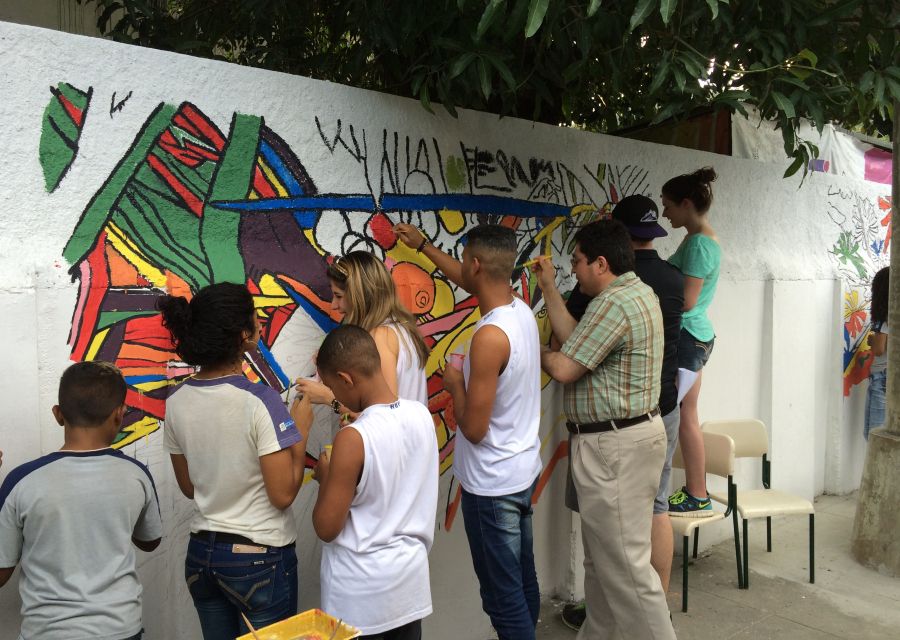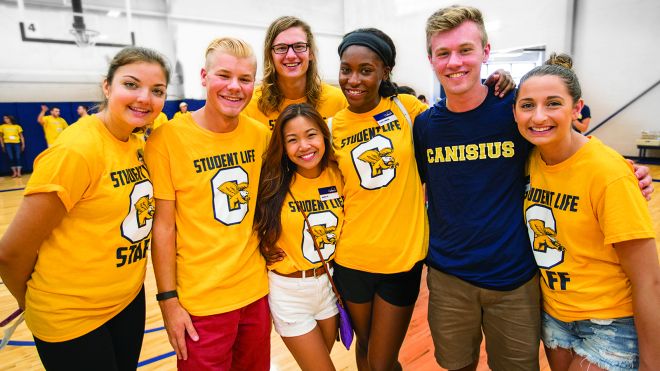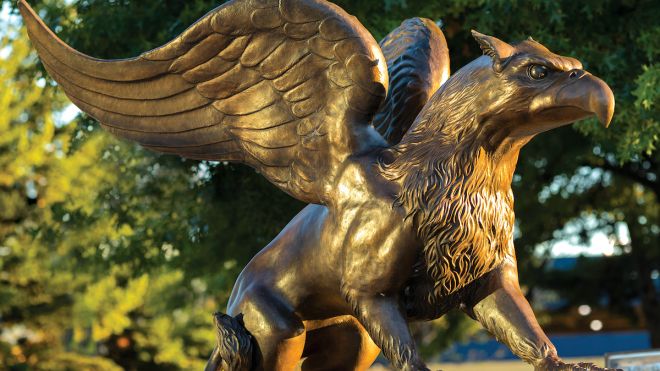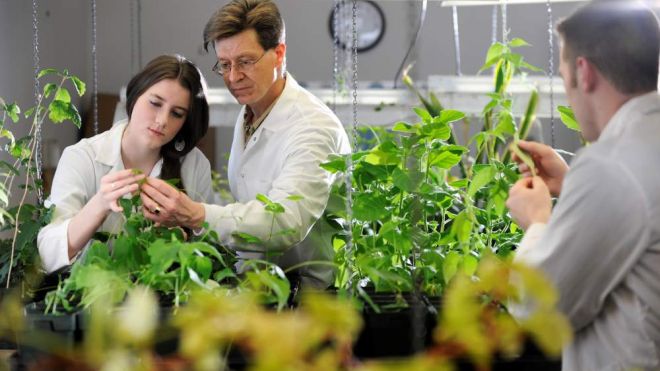
BUFFALO, NY - Nestled in the tropical Atlantic Rainforest of Brazil (Mata Atlântica), just a half hour northeast of Rio de Janeiro, is one of the world’s most biodiverse ecosystems. Rich with thousands of bird, mammal and reptile species, these 400 acres beyond the Santo Antonio valley are similarly lush with vegetation varieties found nowhere else on Earth.
Such fertile habitat makes this portion of Brazil an environmental treasure. But as a group of Canisius students learned, the region is – quite literally – fighting for its life.
“Due to urban expansion and encroachment on the Atlantic Rainforest, the region’s biodiversity is seriously threatened,” says Brian M. Sas ’06, MBA ’12.
In 2012, Sas was the first of 23 undergraduate and graduate students to travel to the Rio de Janeiro region of Brazil to see, firsthand, how the country is struggling to reconcile the rewards of economic growth with the sustainable development of its natural resources.
Based on a simple principle, sustainable development is defined as meeting the needs of the present without compromising those of future generations. Being sustainable in business is a modus operandi that “takes into account economic prosperity, environmental quality and social justice – or more simply – people, planet and profits,” explains Management Professor Coral R. Snodgrass, PhD, who leads the Brazil trip.
“It requires a holistic approach,” adds her colleague Ronald M. Rivas, PhD. “One that considers a company’s entire value chain – from the origins of its raw materials to the elimination of waste during the production process and ultimately, how the product is reused, reduced or recycled.”
Though once a buzzword, being green is going mainstream.
Sustainable development is becoming an integral part of the corporate business model “as companies realize the significant cost savings, new business opportunities, and increased consumer demand – particularly among millennials – for eco-friendly products,” says Snodgrass.
This corporate drive toward sustainability is fueling a need for business professionals “who understand the complex nature of sustainable development and are equipped to develop profitable eco-friendly policies and products,” Rivas says.
The trip to Brazil provides a formidable training ground for Canisius’ business students.
“Every single thing we did was eye-opening and taught me that’s it’s possible to live and do business in more conscious ways,” says Shelby Arena ’16.
Sinal do Vale serves as the home base for students during their 10-day stay. The 400-acre sanctuary is “guardian to this threatened portion of the Mata Atlântica,” says Sinal’s founder, Thais Corral.
The Atlantic Rainforest, Corral explains, once encompassed 330 million acres, about twice the size of Texas. Only 13 percent remains today. Much has been lost to logging for urban sprawl, deforestation for agriculture and biofuels, and clearing for cattle ranching.
The people of Sinal do Vale work to reverse the degradation of the rainforest, which regulates their climate, prevents soil erosion and provides shelter to the marginalized. Many modern medicines also originate from plant life found in the rainforest.
“Sinal is a living laboratory for social innovators,” Corral explains. “They come here to design, experiment and implement practical and sustainable solutions to problems we face.”
Working alongside them are Canisius students who engage in modest but meaningful green initiatives, in a region “void of such basic services as running water, electricity and sanitation infrastructure,” Sarah Battaglia Hrywnak MBA ’16 says.
Students experiment with bio-construction, using ecological building methods and materials, such as bamboo, to design dry toilets, greenhouses and compost systems.
Also in Sinal, Canisius students assist underserved families from nearby rural communities to clear trash from the streets and turn that into treasure for their schools. They refashion discarded tires and wood pallets into furniture, refill empty soda bottles with beans to make maracas for music instruction and recycle broken pieces of glass and tile to create colorful art for the walls.
“The people here have very little but they really taught us to rethink what we (Americans) see as waste and consider how it can be reused or recycled into something new and purposeful,” Angel Saldivar ’18 says.
Together with local farmers, students plant organic gardens and “learn the agriculture techniques necessary to restore the soil and preserve the rainforest,” recalls Arena. They also participate in an extensive restoration and reforestation project supported largely by Dannon. An industry leader in the sale of bottled water, Dannon’s supply of water is endangered due to the destruction of the rainforest.
“I saw, firsthand, just how everything is interconnected,” Arena says. “Environmental justice is economic justice and economic justice is social justice.”
With this in mind, students return home eager to live, learn and do business in sustainable ways.
Sas remains actively involved in Sinal, working with Thais Corral to spread awareness on the importance of regeneration and life-sustaining business models.
Arena says the Brazil trip “transformed her life.” She is now in Costa Rica pursuing a master’s degree in sustainable agriculture.
Saldivar is brainstorming sustainable ideas to help the Boys & Girls Club on Buffalo’s West Side. He’s using the lessons he learned about recycling and reuse, from Brazil’s marginalized children, as his inspiration.
And Hrywnak launched her own start-up business, since returning from Brazil.
“At Olive Ridley, we divert excess and unused latex paint from disposal and recycle it into second generation, high-quality paint products,” she explains.
By building a business and a better world, Hrywnak and others of her generation are helping to secure a greener, more sustainable future for people - and the planet.



